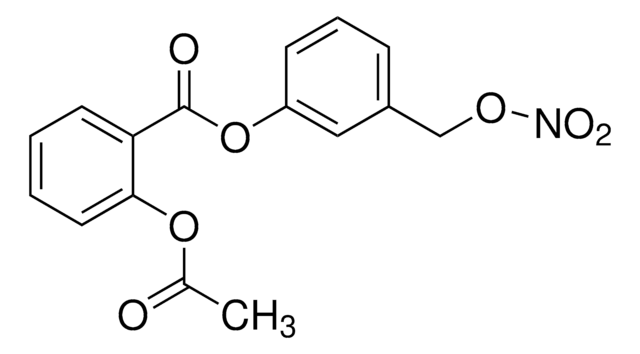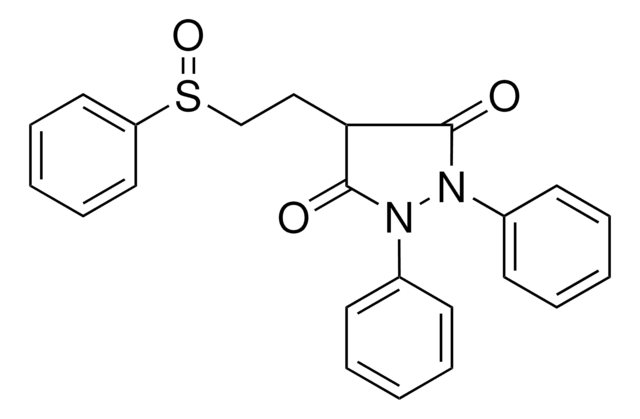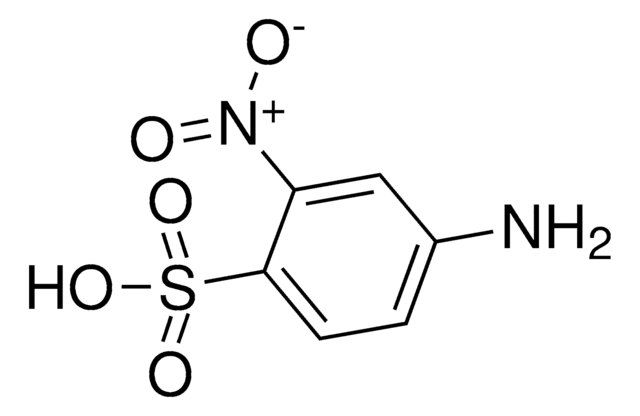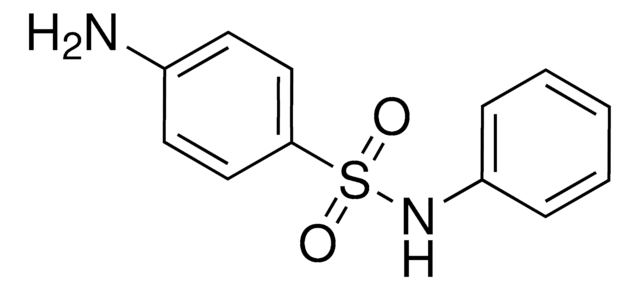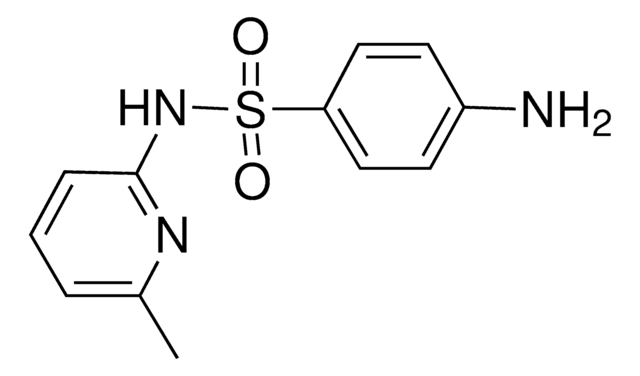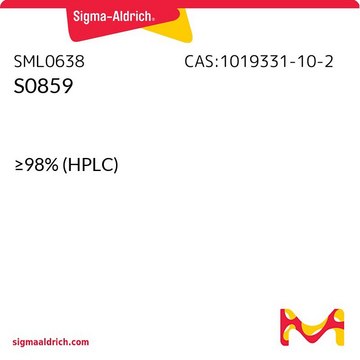Wichtige Dokumente
SML0414
NCX 4040
≥98% (HPLC)
Synonym(e):
2-(Acetyloxy)benzoic acid 4-(nitroxymethyl)phenyl ester, NO-aspirin
About This Item
Empfohlene Produkte
Qualitätsniveau
Assay
≥98% (HPLC)
Form
powder
Lagerbedingungen
protect from light
Farbe
white to beige
Löslichkeit
DMSO: 15 mg/mL (clear solution)
Lagertemp.
−20°C
SMILES String
CC(=O)Oc1ccccc1C(=O)Oc2ccc(CO[N+]([O-])=O)cc2
InChI
1S/C16H13NO7/c1-11(18)23-15-5-3-2-4-14(15)16(19)24-13-8-6-12(7-9-13)10-22-17(20)21/h2-9H,10H2,1H3
InChIKey
CTHNKWFUDCMLIQ-UHFFFAOYSA-N
Verwandte Kategorien
Biochem./physiol. Wirkung
Leistungsmerkmale und Vorteile
Signalwort
Danger
H-Sätze
Gefahreneinstufungen
Aquatic Acute 1 - Eye Dam. 1 - Skin Sens. 1
Lagerklassenschlüssel
11 - Combustible Solids
WGK
WGK 3
Flammpunkt (°F)
Not applicable
Flammpunkt (°C)
Not applicable
Hier finden Sie alle aktuellen Versionen:
Analysenzertifikate (COA)
Die passende Version wird nicht angezeigt?
Wenn Sie eine bestimmte Version benötigen, können Sie anhand der Lot- oder Chargennummer nach einem spezifischen Zertifikat suchen.
Besitzen Sie dieses Produkt bereits?
In der Dokumentenbibliothek finden Sie die Dokumentation zu den Produkten, die Sie kürzlich erworben haben.
Artikel
We offer many products related to nitric oxide synthases for your research needs.
Unser Team von Wissenschaftlern verfügt über Erfahrung in allen Forschungsbereichen einschließlich Life Science, Materialwissenschaften, chemischer Synthese, Chromatographie, Analytik und vielen mehr..
Setzen Sie sich mit dem technischen Dienst in Verbindung.